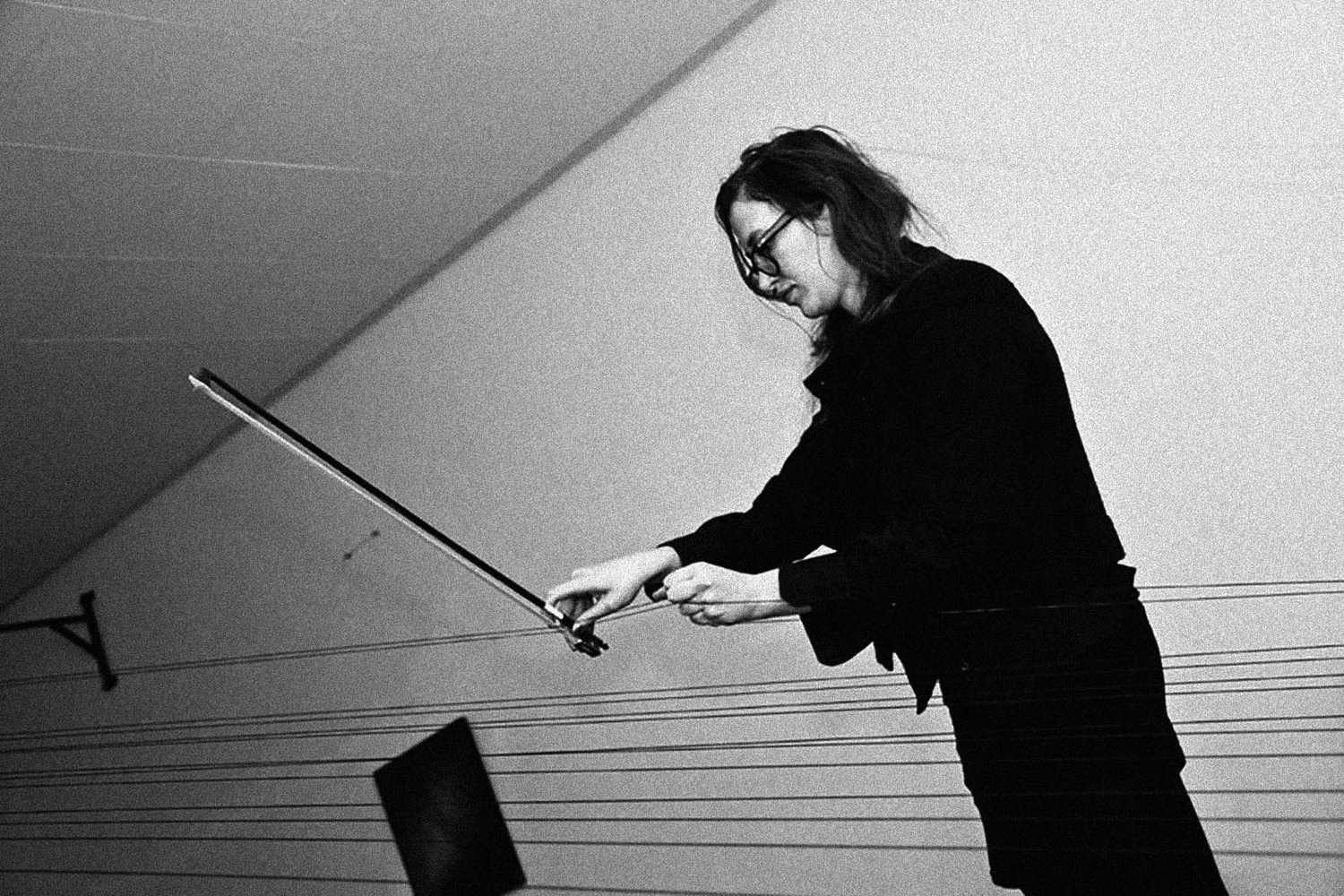Rūta Vitkauskaitė

Rūta Vitkauskaitė (1984) is a composer, performer and curator whose work in music crosses conventional disciplinary boundaries. Rūta obtained a Masters from Lithuanian Academy of Musico and completed her PhD at the Royal Academy of Music in London in classical composition. Since then she has created work in the field of experimental music, with a focus on music visualisation, acoustic surround and music personalisation. From 2006–2013 she was the director of Druskomanija festival and workshop series in Lithuania. She acted as the facilitator of New Music Incubator with Martin Q Larsson in Nordic and Baltic countries – now an EU-wide project – from 2012–2017). Rūta’s practice as a performer includes the violin, piano, voice, and electronics.
While living in the UK Ruta has developed a deep interest in music education. She was a trainee at BCMG and held a fellowship at the Open Academy at RAM in 2013, where she worked with people living with dementia. Currently, Rūta is deepening her research in music personalisation through her work with Spatial Opera Company; her solo performance Something Personal; and delivering music as a community experience in her site-specific workshop-based project WALKING OPERA.
‘In her music Ruta Vitkauskaite strives to grasp the fundamental matters, the primeval universality, as if looking for the “philosophical stone” of the mythic musical substance. Her works show a highly powerful basis of irrational intuition, hard-to-describe soundscapes resembling archetypes – the shapes of the collective unconscious. The composer often combines the language of contemporary academic music, elements of ethnic and ritual music of different cultures (African tribes, shamans of the North, Georgians, Arabs and Jews, or the Lithuanian laments) and the sounds of experimental electronics. Her eccentric works often resemble natural forces – seemingly unorganised and chaotic formations – sticking together as a highly dynamic, vital and unpredictable whole, always generating an active emotion.’ Asta Pakarklyte, 2009